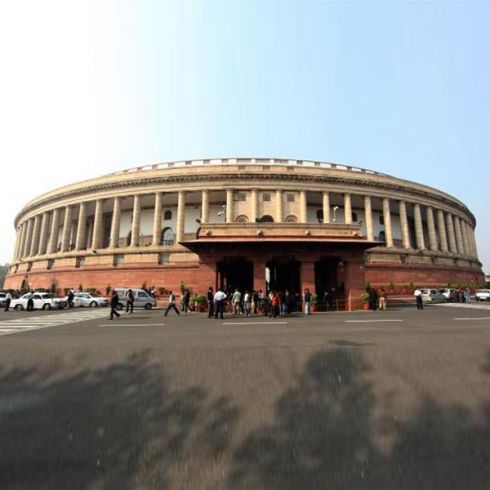
NEW DELHI: The Union Cabinet decided that all access spectrum including traded spectrum will be sharable provided that both licensees are having spectrum in the same band.
Approving guidelines on spectrum sharing following the recommendations of the Telecom Regulatory Authority of India (TRAI), the Cabinet presided over by Prime Minister Narendra Modi late in the evening also decided that leasing of spectrum will not be permitted.
For the purpose of charging Spectrum Usage Charges (SUC), licensees will be considered as sharing their entire spectrum holding in the particular band in the entire LSA. SUC rate of each of the licensees post-sharing shall increase by 0.5 percent of Aggregate Gross Revenue (AGR).
The move is aimed at fulfilling the Government’s commitment to improve spectral efficiency and quality of service, which is very essential to fulfil the dream of digital India.
The then Government in November 2012 approved the principle of sharing the spectrum but detailed guidelines were not issued, and the policy could not be implemented.
The guidelines said the right to share spectrum will be subject to fulfilment of relevant license conditions and any other conditions that may be specified by the licensor/Government from time to time.
A licensee will not be eligible to share its spectrum, if it has been established that it is in breach of terms and conditions of the licence, and the licensor has ordered for revocation/termination of its licence.
Spectrum sharing will be restricted to sharing by only two licensees subject to the condition that there will be at least two independent networks provided in the same band.
Sharing can be permitted where both sharing entities possess spectrum for which market price has been paid with clarification in respect of spectrum in 800 MHz acquired in the auction held in March 2013, sharing of spectrum shall be permitted only if differential of latest auction price and March 2013 auction price on pro-rata basis on the balance period of right to use the spectrum is paid.
It can also be shared where both sharing entities are having administratively allotted spectrum, and where one sharing entity has spectrum acquired through auction or liberalised spectrum and the other has spectrum allotted administratively, sharing shall be permitted only after spectrum charges for liberalising the administratively allocated spectrum are paid.
Guided by the principle of ‘ease of doing business’, the Cabinet also decided that both licensees sharing the spectrum will jointly give a prior intimation for sharing the right to use the spectrum at least 45 days before the proposed effective date of the sharing. Both the licensees shall also give an undertaking that they are in compliance with all terms and conditions of the guidelines for spectrum sharing and licence conditions.
The Government will have the right to take appropriate action which among other things may include annulment of sharing arrangement in the event that is established at any stage in the future, that either of the licensee was not in conformance with the terms and conditions of the guidelines for spectrum sharing or/and of the licence, at the time of giving intimation for sharing of right to use the spectrum,
A processing fee of Rs 50,000 which could be modified from time to time shall be payable individually by each licensee for each service area at the time of intimation.
The use of technology shall be governed by the terms and conditions of respective Notice Inviting Application (NIA)/license.
Both licensees will be individually and collectively responsible for complying with sharing guidelines, including interference norms.
The prescribed limits for spectrum cap will be applicable for both licensees individually. Further, spectrum holding of any licensee post-sharing shall be counted after adding 50 percent of the spectrum held by the other licensee in the band being shared, being added as additional spectrum to the original spectrum, held by the licensee in the band.
Historically in most countries, the Government used to decide the procedure for allocation of spectrum. The telecom sector being a capital intensive sector, normally such assignments are made for a long period.
But in the last decade, a number of countries have adopted the market mechanism for spectrum assignment. In India spectrum assignment, earlier by and large through administrative allocation procedure and from 2010 onwards through auction process, is made for a period of 20 years.
During this period of 20 years, some operators are able to acquire subscribers and grow at a faster rate as compared to other operators. This results in spectrum lying unutilised with some of the players, while other operators face spectrum crunch as spectrum is a scare resource.
Thus spectrum, which is a limited natural resource, remains unutilised while consumers suffer due to poor quality of services on account of spectrum crunch with other service providers.
Spectrum sharing allows operators to pool their respective spectrum for usage in a specific geographical area and thus complementing each other’s needs and ensuring more efficient utilisation of the spectrum.
Moreover, the pooling of the spectrum increases spectrum efficiency for both operators, as capacity to carry telecom traffic is not in linear proportion to the sum of their spectrum holding, but is much larger than the sum of the traffic capacities of individual service provider.